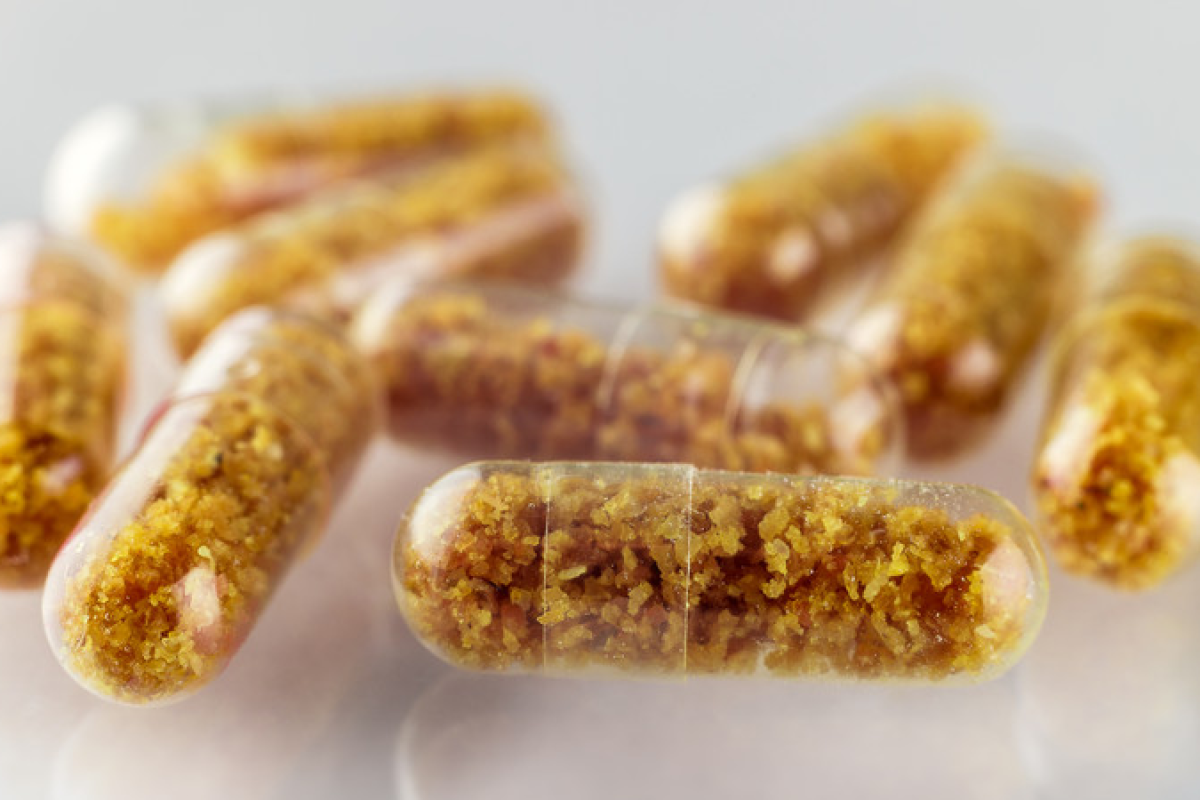Nothing Says I Love You Like a Number Two

If your loved one offered you a very special personal gift that would make you healthier, would you be interested?
It’s going to boost your immune system and reduce the chances of you picking some very nasty stomach upsets. And it might even help you lose weight.
I should mention it's not available from Asos or John Lewis.
What is it?
A faecal transplant, also known as transpoosion.
It’s pretty much what it says on the tin - part of a faecal stool is taken from one person and given to another.
Admittedly it’s not the sexiest St. Valentine’s gift ever, but there are huge health benefits and it could even be life-saving.
The purpose is to introduce new beneficial microbes to the receiving person’s digestive system. It also shows just how important microbes, which colonise just about every surface of our body, inside and out, are to our health.
Your gut is an astonishingly rich and complex world with many different types of bacteria interacting with each other and our human tissue. Down in your bowels there is an ecosystem as varied as any rainforest or coral reef.
We’ve known for a long time that bacteria aren’t all bad. Many just hitchhike through your body without causing any problems. Some are beneficial, even necessary, for a healthy body. But a few of these are pathogens and they harm their host. The dangerous ones are usually found in very low numbers. It’s hard to put a precise number on it, but it’s probably less than one per cent of the total in your gut.
But a bacterium called Clostridium difficile (C. diff) can take over and dominate your bowels. It’s an opportunist, which means that it likes to take hold after patients have been treated with antibiotics.
Antibiotics were one of the miracles of the 20th century, but they kill good and bad bacteria alike and we now know the consequences of that. They leave behind a scorched earth on which the likes of C. diff flourish and lead to the evolution of antibiotic-resistant strains such as MRSA and VRE.
A faecal transplant (to give it its proper title a ‘faecal microbiota transplant’) aims to repopulate your gut with the microbes from a healthy person.
Basically it's a modern take on a 1,700-year-old idea. Faecal transplants were first developed during the 4th century when a Chinese medicine doctor gave a mixture of human stools by mouth to patients who had severe diarrhoea from food poisoning. It was effective and hailed as a miracle. Unsurprisingly, the practice fell out of favour.
Because your stool is about 50% bacteria, the theory behind the transplant is that it can replace good bacteria that have gone missing from your gut. Some people appear to have 'super poo', rich in good bugs.
After your stool is produced, you mix it with water. Some people break it up by hand while others mash it in a household blender.
There are only two routes for getting the poo into the required location: down through the mouth or up through the rectum. Surely, medicine’s grossest procedure.
But it can have dramatic results, even after a single treatment. Trials have suggested the procedure is around 90% effective. A study published in the New England Journal of Medicine showed that faecal transplantation worked better than the antibiotic vancomycin to prevent multiple recurrences in people who had a C. difficile infection in their colon.
The excitement in the field has led to some people even performing their own faecal transplants. It might not surprise you to learn that some Americans are going down the DIY route to try to relieve everything from male pattern baldness to bad breath.
But there may be unintended consequences of a faecal transplant. There was one report in 2015 of a woman gaining 36lb (16kg) after a transplant from her daughter. It’s possible to make mice thinner or fatter by transplanting into them the microbiome from either a lean or obese human. The jury is still out on whether the same rules apply in people.
There is also the more obvious risk of transferring dangerous disease-causing microbes and contaminating surfaces in the process.
That’s why scientists are trying to move on from donating stools to donating cocktails of germs - or bacteriotherapy, which sounds a lot more amenable than 'faecal transplant,' yet they're both treatments that use bacteria itself to cure or treat infections. It might be a lot easier for a doctor to get a patient to swallow a capsule of freeze-dried faecal matter than getting them to accept it draught.
In the meantime, if you're planning on trying this at home, you might want to replace your blender afterwards.
← Back to blog
